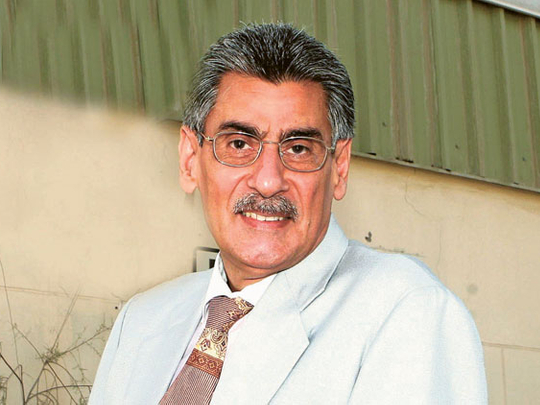
Dubai: The only sustaining thing with sustainable development is that it still gets talked about. But when it actually comes to working out ways and means to put it into practice, a major disconnect sets in.
"In conversations we have, even with large contractors, they feel that unless it is specified, they are not going to take on the problem," said Jayant Bakshi, director and CEO at the building materials supplier Links International, based in the Sharjah Airport International Free (Saif) Zone.
"Or when it does get specified, there is a transference of liability which I believe is the fundamental weakness in the system. It means the developer will ask the contractor who in turn will ask a subcontractor. He then has to produce a chain of custody or certify it on a letterhead that the materials supplied are made from sustainable sources. And that is not easy.
"Unless the actual manufacturer is clearly specified in a contract, nobody associated with a project here is willing to look at new sustainable products just because a subcontractor said so."
Sustainability is even more of a hard sell in an indifferent environment for new project activity. There was talk at the beginning of the year that construction activity is in for a major turnaround this year.
But in the three months since, there is little evidence to support such a sentiment. Whatever projects there are on the ground relate to infrastructure works and, that being the case, are led by the public sector.
So what is a subcontractor trying to make a case for green building materials left with? "Whenever you attempt to do something that's right, you do it because it is right and that is where the subject ends," said Bakshi. "You don't necessarily make the attempt only because it's commercially viable.
"Fortunately, I don't carry inventories. And I would only consider putting up huge amounts on the marketing side provided I get that first response from contractors or developers. If I don't get that first response, it does not necessarily give me the confidence to go and do it on my own."
Keen interest
That makes for a bit of a cul-de-sac at the moment. But Bakshi is not one to lose hope. He is now making a concerted pitch for projects in Saudi Arabia, where the construction sector is in far better shape. Also, the authorities are taking keen interest in ensuring that the large-scale projects do have a sustainability component.
There are even possibilities beyond the Gulf as far as Bakshi is concerned. In India and Nepal, and for some of the African markets, he is going for full-scale townships.
"I am not talking about just shipping doors and other materials, but the lock, stock and barrel import on a project basis of an entire sustainably developed township, including the laying of roads," he said. "It can be done and feasible in markets where import duties are high.
"Yes, India does have a high import duty structure at 27 per cent, but exemptions can be provided if the developer shows it's a green development. Carbon credits can thus be earned.
"I began the marketing process two months ago and getting two types of responses — one is to move ahead and do some trials. I have trial requests on the houses and roads four parties. So regardless of import duties, we will be putting up certain structures there."
While his company gets a move on in India, it's still waiting for the tipping point for sustainable development to be sighted in the UAE. Will it be a long wait?











